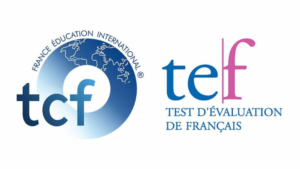Ever wished that one day you can also speak and sound like a french person? Like listening speaking is also an important skill in french language. Proficiency in French speaking skills offers numerous benefits, both personally and professionally.
Nothing is impossible! Speaking french can be learned over time but before that you should go through this blog to understand the importance, challenges and process of improving your french speaking skills.
Importance and Benefits of French speaking skills
First and foremost, it facilitates effective communication with over 300 million French speakers worldwide, opening doors to new opportunities for travel, cultural exchange, and social interaction.
French speaking skills are highly valued in various industries, including international business, diplomacy, tourism, and academia. Being bilingual in French can significantly enhance career prospects and competitiveness in the global job market, as it demonstrates cross-cultural communication skills and adaptability. When learning from a native speaker, you’re also learning more about the French culture behind the language.
From government agencies to Fortune 500 companies, businesses large and small understand what multilingualism brings to the table and are willing to pay more for employees that bring language skills into their organization. Who knows: your linguistic skills might even help get your foot into the door of French companies or make you a more sought-after candidate in the international job market.
Once you start speaking french then your journey will get more interesting and adventurous!
Challenges in speaking french
Lack of confidence– When it comes to self-confidence, many learners struggle. Either they fear of mistakes or self-embarrassment.
Limited Vocabulary– If you don’t have words, how will you speak? Insufficient vocabulary can hinder fluid communication and expression in French.
Pronunciation– Pronunciation challenges may arise due to unfamiliar sounds or differences in phonetic rules between French and one’s native language.
Grammar Errors– Grammar is more important to form a phrase. Incorrect usage of grammar structures can avoid clarity and coherence in spoken French.
Nasal vowels– French has several nasal vowels, which are pronounced by allowing air to flow through the nose as well as the mouth. The nasal vowels are “an,” “en,” “in,” “on,” and “un.” For example, the word “bon” is pronounced as “bawn.”
Silent letters – French has several silent letters, which are not pronounced in certain words. For example, the letter “h” is usually silent in French, and the letter “s” at the end of words is often silent.
Vowel sounds – French has several vowel sounds that are different from English, and it’s essential to master them to speak French like a native. For example, the French “eu” sounds like the English “uh,” and the French “ai” sounds like the English “ey.”
French words have a specific stress pattern, and it’s essential to pronounce the stressed syllable correctly. The stress usually falls on the last syllable, except for words ending in “-eux,” which are stressed on the second-to-last syllable.
Intonation – French has a specific intonation pattern, and it’s essential to follow it to sound natural when speaking French. The intonation pattern is usually rising at the end of questions and falling at the end of statements.
Fear of Speaking in Real-Life Situations– Fear of speaking in real-life situations, such as conversations with native speakers or in public settings, can hinder progress.

Strategies to improve speaking
Listen and repeat: Listen to French native speakers, french audio recordings, podcasts, or videos, and mimic their pronunciation. Pay close attention to the sounds, intonation, and rhythm and practice repeating phrases aloud.
Break Down Sounds: Focus on individual sounds (phonemes) and practice producing them accurately. Pay attention to the differences between their sounds and those in your native language. Use resources like pronunciation guides and online tutorials to learn the correct mouth positions for producing French sounds.
Shadowing: Shadowing is a technique that involves listening to a native speaker and simultaneously repeating what they say, with the same intonation and rhythm. This technique helps improve pronunciation, fluency, and natural speech patterns. Start with basic short phrases or simple sentences and slowly increase the difficulty as you become more comfortable.
Use Tongue Twisters: Practicing french tongue twisters can improve articulation and diction. Tongue twisters challenges your ability to pronounce difficult sequences of sounds quickly and accurately. Start with simple ones and then go for harder ones.
1) Simple- Trois tortues trottaient sur un trottoir très étroit. (Translation: Three turtles were trotting on a very narrow sidewalk.
2) Medium- Ces six saucissons-ci sont six sous. (Translation: These six sausages here are six cents.)
3) Hard- Je suis ce que je suis et si je suis ce que je suis, qu’est-ce que je suis ? (Translation: I am what I am, and if I am what I am, what am I?)
Practice Minimal Pairs– Minimal pairs are pairs of words that differ by only one sound. Practice distinguishing between similar-sounding words in French to improve your ability to hear and produce different sounds accurately.
| Mère – Mother | Mer – Sea |
| Gare – Train station | Carre – Square |
Vocabulary fluency– You need to improve and have a good vocabulary to speak french with easy. How? Read French books, newspapers, magazines, and online articles to collect new words. Watch French movies, TV shows, and YouTube videos. Listen to French podcasts, audiobooks, music, and radio programs to immerse yourself in spoken French and expand your vocabulary. Regularly review and revise vocabulary lists or flashcards.

Types of French speaking excercises and activities
Conversation starters– Conversation starters prompt discussions on topics like current events or personal interests, encouraging open-ended questions and active listening. Websites like ThoughtCo offer lists of conversation starters for various topics.
Picture descriptions– Picture descriptions provide visual prompts to practice vocabulary and descriptive language. You can use resources like Pinterest for finding images or books with illustrations for this purpose. Apps like FluentU and Rosetta Stone also incorporate visual learning elements into their lessons.
Storytelling exercises – Storytelling exercises allow for narrative practice, encouraging creativity and imagination. You can find writing prompts on websites like The Write Practice or use resources like Storybird, which provides a platform for creating and sharing stories in French.
Public speaking practice involves delivering speeches or presentations on topics of interest, focusing on effective communication techniques. You can join public speaking clubs like Toastmasters. Mock interviews simulate real-world communication situations. Websites like LiveCareer offer common interview questions and tips for conducting mock interviews.
Here are some examples of french idioms and expressions,
| “C’est la goutte d’eau qui fait déborder le vase” | “It’s the drop of water that makes the vase overflow,” meaning “it’s the last straw” or “the final tipping point.” |
| “Avoir le bras long” | “To have a long arm,” meaning “to have influence” or “to have connections.” |
| “Être dans les nuages” | “To be in the clouds,” meaning “to have one’s head in the clouds” or “to be daydreaming.” |
Related: ROMANTIC PHRASES IN FRENCH: FROM FLIRTING TO MARRIAGE
Conclusion
Mastering French speaking involves learning conversational strategies, embracing feedback, overcoming fear, and persistence. Active listening, seeking clarification, and using fillers aid in smooth discussions. Feedback guides improvement, while conquering fear and building confidence requires gradual exposure and positive reinforcement. Consistent practice, achievable goals, and perseverance are key. With dedication, fluency and confidence in French speaking will steadily progress.
If you wish to take professional classes to increase your speaking skills, do not forget to check out LFE learnfrenchenligne , where you will get support from professional trainers. They have workshops, live webinars, and prepare you for french exams like delf dalf, tcf tef as well.
You can reach out to LFE at info@www.learnfrenchenligne.com
Contact no- +91 8447244746







